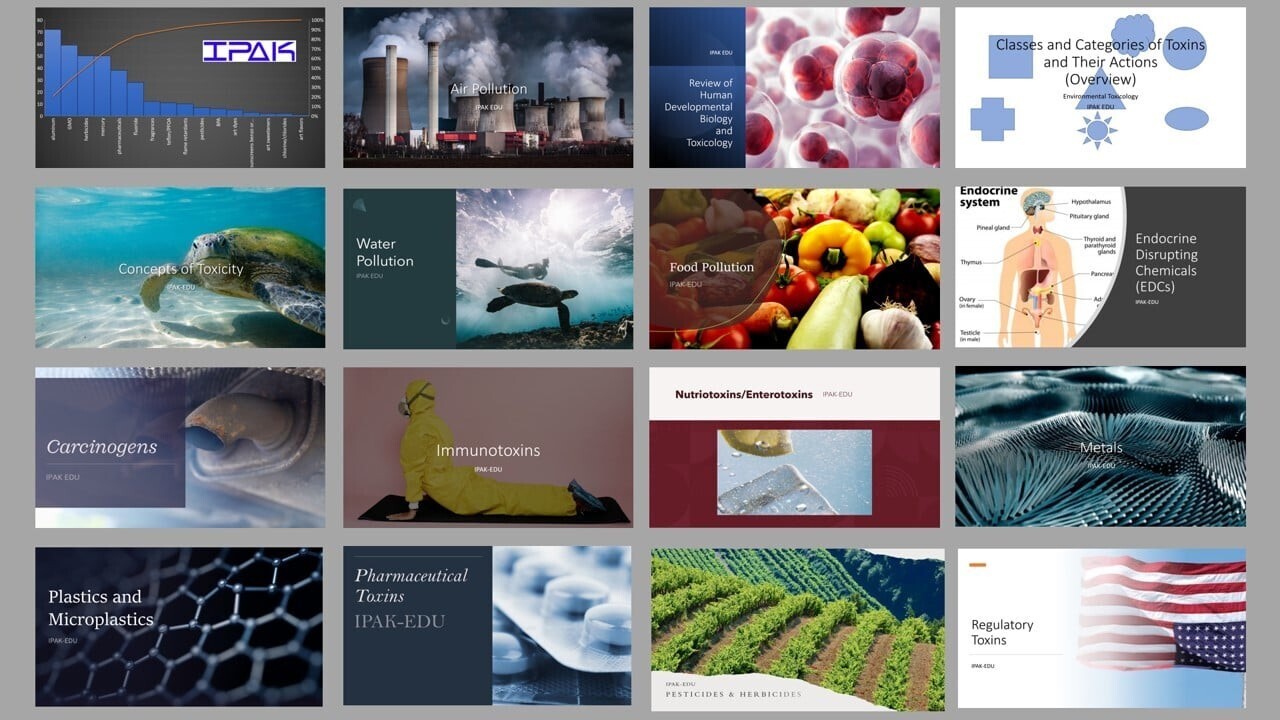Environmental Toxicology: Ecosystem and Human Health
Environmental Toxicology: Ecosystem and Human Health
Gaining Essential Skills with IPAK's Environmental Toxicology Course
Spring Semester 2026 (Jan-June)
(Need a Paypal monthly payment option? PAYPAL)
Master Environmental Toxicology with IPAK's Comprehensive Course
Dive into IPAK's Environmental Toxicology Course to gain crucial knowledge and skills for a healthier, sustainable future. Enroll now to make a difference!
Entry includes a chance to win a reverse osmosis system for your home! See details.
Understanding Our World: The Importance of Environmental Toxicology
Why Choose IPAK's Environmental Toxicology Course?
Interactive and Engaging Learning Experience
Course Highlights: What You Will Learn (Full Syllabus, below)
Making a Difference: The Role of Environmental Toxicology
Join the Community of Advocates
Ready to Start Your Journey?
"IPAK's Environmental Toxicology course is literally a life-saving course, as important as learning CPR and first aid. Unfortunately, our world is awash with toxins as a result of malignant industry, impotent regulation, and profound ignorance of these realities by the public at large. This course is an eye-opener and a must-take; and if it's not enough of an impetus to organize to get these toxins out of our life systems then, at least, enough to change our individual behaviors to reduce our exposure to their dangers. This is truly one of those life-changing courses; I cannot recommend it enough." - Alumnus
Syllabus - Environmental Toxicology: Ecosystem & Human Health
FALL 2025
Instructor: James Lyons-Weiler, PhD
Email: jameslyonsweiler@ipak-edu.org
Live class meetings: Wednesdays @ 11AM ET via Zoom
If you miss a class, don’t worry. Lecture videos will be available after each class.
Course description: In a series of live online presentations and discussions, students will learn the fundamentals of environmental toxicology and become well-informed and primed for discussions in the public sphere. There will be recommended readings, additional recommended videos, recommended books. There are no quizzes or exams. Students are encouraged to think of questions during each lecture to be ready to facilitate the live discussion after each lecture.
Lecture Schedule (tentative, subject to change)
- Background and Course Overview
- Categories of Toxins
- Developmental Biology overview
- Concepts of Toxicity
- Evidence and Causality
- Air Pollution
- Water Pollution
- Food Pollution
- Toxins in the Home, School & Workplace
- Carcinogens and Mutagens, Hallmarks of Cancer
- Teratogens
- Developmental Neurotoxicology
- Reproductive Toxins & Hormone Mimics
- Nutriotoxins
- Heavy Metals
- Flame Retardants
- Pesticides and Herbicides
- Microplastics
- Pharmaceutical toxins
- Synergistic Toxicity
Teratogens, mutagens, carcinogens, reproductive toxins, neurotoxins/excitotoxins, nutriotoxins, immunotoxins
Acute vs. Chronic, Dose toxicity, LD50, Pharmcokinetics of serum/plasma-soluble pollutants, whole-body toxicity
Causality (direct, indirect, synergistic), Hill's Criteria, Levels of Evidence in Scientific Studies (association, dosage response, reversibility)
Mold, EMF, PVC, PCBs


